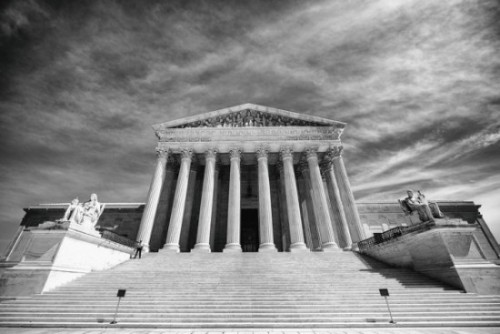In the recent landmark decision, Bostock v. Clayton County, Georgia, the U.S. Supreme Court ruled that existing civil rights law protects gay and transgender people from workplace discrimination. In short, an employer who fires an individual merely for being gay or transgender violates Title VII.
Bostock, along with Altitude Express, Inc., et al. v. Zarda et al., as Co-Independent Executors of the Estate of Zarda, and R. G. & G. R. Harris Funeral Homes, Inc. v. Equal Employment Opportunity Commission et al., was brought before the Supreme Court because of a split in the Courts of Appeal. The Seventh and Second Circuits held that Title VII prohibits employment discrimination based on sexual orientation. Moreover, the Sixth Circuit agreed with the EEOC that Title VII protections also applied to transgender persons, too. On the other hand, the Appellate Court in Bostock followed precedent set by an earlier case in the Eleventh Circuit that held that discrimination based on sexual orientation is not protected under Title VII. The three cases were consolidated and heard before the U.S. Supreme Court in the fall of 2019. The opinion, which was delivered on Monday, June 15, 2020, was authored by Justice Gorsuch, and joined with Chief Justice Roberts and Justices Ginsburg, Breyer, Sotomayor, and Kagan. Justice Alito, joined by Justice Thomas, filed a dissenting opinion, as did Justice Kavanaugh.
The opinion, though quite long, states the conclusion concisely at the start:
Today, we must decide whether an employer can fire someone simply for being homosexual or transgender. The answer is clear. An employer who fires an individual for being homosexual or transgender fires that person for traits or actions it would not have questioned in members of a different sex. Sex plays a necessary and undisguisable role in the decision, exactly what Title VII forbids.
If you want to read more about Title VII actions, the Ramsey County Law Library has a substantive employment law collection with several treatises focusing discrimination. Representing Plaintiffs in Title VII Actions, Fifth Edition, by Robert E. McKnight, is a one-volume loose-leaf title that covers all aspects of litigating a Title VII case. This title covers prohibited practices, such as disparate treatments, harassment, retaliation, failure to provide reasonable accommodations, and more. It proceeds to explain pre-litigation charge filing, the litigation process, and remedies.
Another title that would be of interest is Employee Dismissal Law and Practice, Seventh Edition, by Hank Perritt, Jr. This two-volume set covers these topics: Employment at will, statutory protection against discrimination based on characteristic, discrimination based on conduct, procedural issues for statutory discrimination, downsizing, arbitration, contract theories, tort theories, special problems of public employment, proof and procedure, employer personnel problems, and wrongful dismissal legislation. This title has an extensive look at the appellate decision in Zarda (mentioned above) as well Oncale v. Sundowner Offshore Services, Inc., 523 U.S. 75 (1998), which held that sexual harassment in the workplace between members of the same sex is prohibited under Title VII. You can guarantee that both of titles will be updated soon to reflect the decision in Bostock!
In support of Pride Month, the Law Library is displaying a few titles that discuss and explain LGBT rights and the law. We are expecting a few new books to come in soon, including a new book due in at the end of June titled Law and the Gay Rights Story: The Long Search for Equal Justice in a Divided Democracy. We hope to see you in the Law Library soon. Happy Pride Month!
